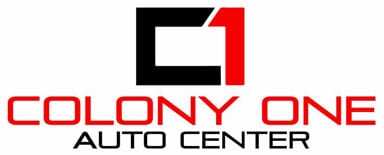Benjamin Franklin is credited with once saying, “An ounce of prevention is worth a pound of cure.” This proverb holds especially true when it comes to car care. By keeping a routine eye on your vehicle and its parts, it allows you to identify any small issues before they turn into much bigger headaches.
In today’s world, there are so many different types of cars that come with their own unique technologies. In order to keep your car performing at its best, it’s important to have a good grasp on what your owner’s manual’s recommendations are for how often certain parts and fluids should be replaced or changed. In general, it is always a good idea to simply pop the hood and have a look over your engine and ensure nothing looks out of place. You should also make specific routine checks a part of your car caring habits – like these five essentials:
Check Your Fluids
When it comes to oil changes, the standard used to be every three months or 3,000 miles. However, with today’s modern vehicles, the mileage and timeframe may be very different than a simple rule of thumb. You can quickly gauge your oil level by examining the dipstick. When you do get an oil change, you should also be sure to check other fluid levels such as your coolant, wiper fluid, transmission, brake, and power steering fluids.
Rotate Your Tires
Not all four tires carry the same amount of weight which is why it is important to get your tires rotated every 5,000 or so miles (check your owner’s manual to see the manufacturer’s specific recommendation).
In addition to having your tires rotated, you will also want to periodically do an examination of the tire tread depth. One easy way to do this is to hold a penny with Abraham Lincoln’s shoulders and torso between your thumb and finger. Insert the edge of the coin with the top of his head into the tread. If any part of the former president’s head is covered by the rubber, your tires should still be good for use. If the coin is touching the tire and no part of Honest Abe’s head is covered by the tread then it might be time to replace your tires.
Change Your Brake Pads
The expected life of brake pads varies greatly depending on the type of driver operating the automobile. Those who brake constantly and abruptly are more likely to have to change their pads than the motorists who typically coast.
Also, people who live in urban areas are also far more likely to need to replace brakes than those who live in rural locations. You can check your own brake pad depth simply by examining them through your wheels. The brake pads are usually found between the caliper and the rotor. Brake pads should be no less than a quarter-inch thick, but other signs such as noisy or unresponsive brakes can mean that it’s time to have the pads replaced.
Check and Clean Your Battery
Older car batteries can get a buildup of corrosion on the terminals, however, buildup on an older battery doesn’t necessarily mean a replacement. Typically, you can clean the battery with baking soda or cola, but you’ll still want to keep occasional checks of the battery’s life after cleaning the nodes. You can keep track of your battery’s life by buying an inexpensive voltmeter or multimeter. After hooking up the meter, if your battery reads between 12.4 and 12.7 volts then it is in good shape. Even if your battery has a lower reading, you can still charge it to increase its lifespan. Always consult with your mechanic if you have concerns about an older battery so you don’t end up stranded out on the road.
Change Your Filters
Cars have multiple filters including oil filters, air filters, cabin air filters, and fuel filters. Oil filters remove contaminants from the vehicle’s oil and are usually changed whenever you have your oil changed. Air filters prevent contaminants from entering the engine and generally do not need to be changed as frequently as oil filters, although there can be exceptions for unique conditions.
Your cabin filter prevents contaminants from entering the car’s interior through the vents, and again the frequency with which this needs to be changed varies by vehicle. Fuel filters remove contaminants from the fuel in petrol vehicles or remove water in diesel engines and are generally checked and cleaned during routine maintenance.
The ASE Certified Master Technicians at Colony One Auto will always make sure to perform all of these checks and more when you bring your car into our Sugar Land location for any auto repair or maintenance. Call, stop by or request a service today.

